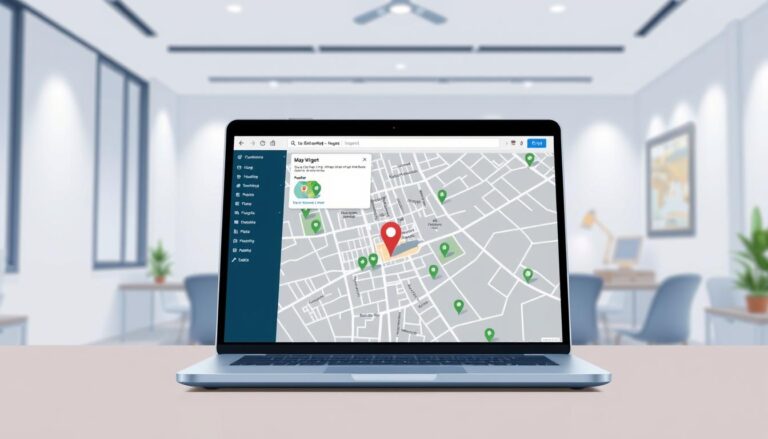Exploring search engine optimization is exciting. I’m here to share a detailed guide on the key factors that affect your website’s visibility. With SEO best practices constantly evolving, it’s vital to keep up to improve your online presence.
In this guide, I’ll cover the essential google search ranking factors that shape your website’s ranking. This will help you boost your online visibility.
Key Takeaways
- Understanding the importance of SEO best practices
- Identifying key google search ranking factors
- Optimizing your website for better visibility
- Staying updated with the latest search engine optimization trends
- Improving your online presence through effective SEO strategies
Understanding the Importance of Google Search Ranking Factors
Google search ranking factors are key to your website’s organic search rankings and website visibility. Knowing these factors helps improve your online presence. It’s essential for a good SEO strategy.
What Are Google Search Ranking Factors?
Google uses ranking factors to order websites in search results. These include content quality and relevance, user experience signals, and technical SEO aspects. Knowing these helps optimize your site for better rankings.
- Content quality and relevance
- User experience signals
- Technical SEO aspects
- Mobile-friendliness
- Page speed
Why They Matter for SEO
Ranking factors are vital for SEO because they affect your website’s visibility. By optimizing for these, you can boost your organic search rankings. This leads to more traffic and possibly more sales.
- Improved organic search rankings
- Increased website visibility
- Better user experience
- Higher conversion rates
The Impact on Your Online Visibility
The effect of ranking factors on your online presence is huge. Optimizing for these can greatly improve your website visibility. This makes it easier for users to find and visit your site. It can also boost your brand, traffic, and sales.
In summary, understanding and optimizing for Google search ranking factors is critical for SEO success. By knowing their importance and how they affect your site, you can enhance your organic search rankings and website visibility.
Core Factors Influencing Google Rankings
Knowing what affects Google rankings is key for SEO. Google’s algorithm looks at many things to rank sites. But, some factors really matter a lot.
Content Quality and Relevance
High-quality, relevant content is at the heart of SEO. It draws in users and helps search engines get your site’s context. Google loves content that’s useful, well-researched, and answers the user’s question.
Create content that’s detailed, engaging, and uses your keywords naturally. Make sure it’s well-structured and simple to read. Use headings, subheadings, and bullet points as needed.
User Experience Signals
User experience signals are now key for Google rankings. These include bounce rate, dwell time, and click-through rate. They show how users interact with your site.
A good user experience can really help your site’s ranking. Make sure your site is easy to navigate and has a clear design. Also, speed up your site, as slow sites can hurt user experience.
Mobile-Friendliness
Most searches are now on mobile. So, making your site mobile-friendly is essential. Google now focuses on mobile-optimized sites first.
To be mobile-friendly, your site must be responsive. It should work well on all screen sizes. Use Google’s Mobile-Friendly Test to check your site and fix any mobile issues.
The Role of Keyword Optimization
Using the right keywords is vital for better search engine rankings. In the world of SEO, keyword optimization is essential. It can greatly impact your online presence.
First, understanding keyword research is key. It’s about finding the terms your audience uses to find content like yours. By doing thorough keyword research, you can find the best keywords for your content. This helps in optimizing for better SERP optimization.
Keyword Research Techniques
Effective keyword research uses several methods. Tools like Google Keyword Planner or Ahrefs help find relevant keywords. Also, analyzing your competitors’ keywords can reveal gaps in the market. Combining these methods helps create a strong keyword strategy that boosts your site’s traffic.
- Use keyword research tools to identify relevant terms.
- Analyze competitors’ keywords to find opportunities.
- Consider long-tail keywords for more specific searches.
Placement of Keywords in Content
After finding your target keywords, place them wisely in your content. Use them in your page title, meta description, and throughout your content. But, remember to keep a natural keyword density to avoid search engine penalties.
Avoiding Keyword Stuffing
Keyword stuffing is a big mistake that can hurt your SEO. It means using too many keywords to try to rank higher. Instead, aim for quality and engagement in your content. Use keywords naturally to enhance your SERP optimization and offer value to your readers.
By sticking to these tips and avoiding keyword stuffing, you can optimize your content well. This will help improve your search engine rankings.
Backlinks: Building Authority and Trust
Backlinks are key to a good SEO strategy. I’m excited to share how to use them well. They help your website look trustworthy to search engines.
What Are Backlinks?
Backlinks, or incoming links, are links from one site to another. They show search engines that the content is valuable. This means the content is worth mentioning.
A high-quality backlink comes from a respected site. For example, a link from a top industry blog can really help your site’s reputation.
How to Earn Quality Backlinks
Getting quality backlinks takes planning. Here are some good ways:
- Create high-quality, engaging content that others will want to link to.
- Participate in guest blogging to build relationships with other websites and earn backlinks.
- Leverage resource pages by listing your website on relevant directories.

The Impact of Anchor Text
Anchor text is the text in a hyperlink. It’s important for SEO because it tells search engines about the linked page. Good anchor text can make the page more visible for certain keywords.
But, it’s important to have a natural anchor text distribution. This means not using the same text all the time. Mix up your anchor text with branded, generic, and long-tail keywords.
Page Speed and Technical SEO
Page speed is now a key SEO ranking factor. A fast website makes users happy and boosts search rankings. It’s clear that making your page load quickly is vital for being seen online.
Why Page Speed Matters
Page speed affects how users feel about your site. A slow site can make people leave quickly. Search engines like Google also look at page speed when ranking sites.
Key reasons why page speed matters include:
- Improved user experience
- Lower bounce rates
- Better search engine rankings
- Enhanced conversion rates
Tools to Measure and Improve Page Speed
Many tools can help you check and boost your site’s speed. Some top tools are:
- Google PageSpeed Insights
- GTmetrix
- Pingdom
These tools show how your site performs and suggest ways to get better.
Mobile Page Speed Optimization
Most people use mobiles to surf the web. So, making your site fast on mobile is key. To do this, you can:
- Optimize images
- Minify CSS and JavaScript files
- Use browser caching
By focusing on mobile speed, you can make users and search engines happier.
User Engagement Metrics
User engagement metrics show how people interact with your website. They help you see where you can do better. This way, you can make your website more appealing to visitors.
Bounce Rate and Dwell Time
Bounce rate and dwell time are key to knowing if users like your site. Bounce rate is when people leave without doing anything else. A high bounce rate means your site might not be interesting enough. Dwell time is how long people stay before going back to search results. A longer dwell time means your content is good and keeps people interested.
- A low bounce rate and high dwell time are good signs for search engines.
- Making your content better can help these numbers.
- Updating your content often keeps people coming back.
Click-Through Rate (CTR)
Click-Through Rate (CTR) shows how many people click on your link in search results. A high CTR means your titles and descriptions grab attention. To get more clicks, make your headlines and meta tags catchy and true to your content.
- Use the right keywords in your title tags to get noticed.
- Write meta descriptions that make people want to click.
- Try out different titles and meta tags to see what works best.
The Importance of Engagement Signals
Engagement signals like bounce rate, dwell time, and CTR are vital for SEO. They tell search engines how users see your website. By improving these, you can rank higher in search results and get more visitors.

In short, focusing on user engagement is key to a better website and higher search rankings. By working on bounce rate, dwell time, CTR, and other signals, you can make your site more user-friendly and relevant.
Local SEO Ranking Factors
As a business owner, knowing about local SEO is key to your success online. Local SEO helps attract local customers and boosts your search result visibility.
Optimizing for Local Searches
To rank well in local searches, use location-specific keywords in your content. Include your city, state, or region in your website’s content and meta tags. This makes your site more relevant for local searches.
Also, make sure your website is mobile-friendly. Many local searches happen on mobiles. A mobile-friendly site offers a better user experience, which helps in local SEO rankings.
The Role of Google My Business
Google My Business (GMB) is a must for local businesses. Claiming and optimizing your GMB listing boosts your local search visibility. Make sure your business hours, address, and contact details are up-to-date.
- Verify your business listing to ensure accuracy.
- Respond quickly to customer reviews on your GMB listing.
- Use GMB posts to share updates and offers with your audience.
Importance of Local Citations
Local citations are mentions of your business on other websites. They help search engines understand your business’s local presence. It’s important to get listed in reputable local directories and citations sites.
To get the most from local citations, keep your business’s name, address, and phone number (NAP) the same everywhere. Inconsistent NAP can confuse search engines and hurt your local SEO rankings.
Staying Updated with SEO Trends
Google keeps changing its search algorithm. It’s key to keep up with these updates to stay ahead in search rankings. I follow top sources and leaders to know about these changes.
Tracking Algorithm Changes
It’s vital to watch for Google algorithm updates. This helps me see how they affect my website’s visibility. By knowing these updates, I can tweak my SEO to meet the latest standards.
Adapting Strategies
Keeping up with ranking factor changes is a must. I always check and update my SEO plans. This ensures my website stays top-notch and user-friendly.
Ongoing SEO Education
SEO is always changing, so I focus on learning more. I use tools like Moz, Ahrefs, and SEMrush to stay current. This helps me improve my website’s ranking.










